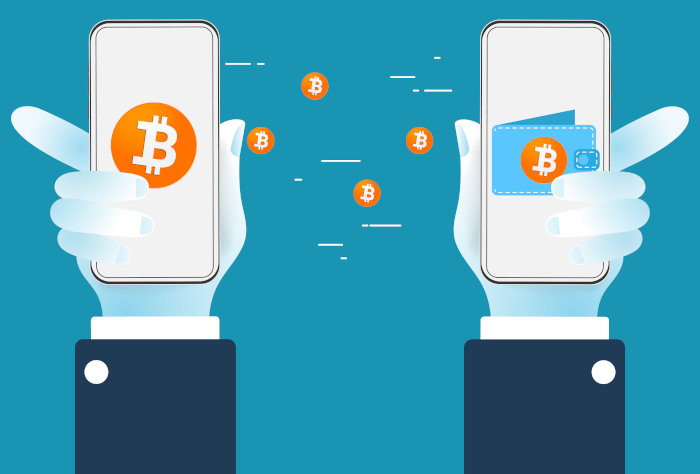Waiting for a bitcoin transaction to complete the first time can be a little stressful. Often there can be a little doubt as to whether you sent bitcoin to the wrong address or whether you used a high enough transaction fee for your bitcoin transaction to complete in a reasonable time frame. Thankfully, many of these concerns tend to fade with time as you get a few transactions completed and get a handle on the average time it takes.
Read on to understand better a few of the variables involved to find some answers to common questions regarding bitcoin transactions and just how long they take. If you've been asking yourself questions like how long for bitcoin to transfer or find yourself wondering how bitcoin transactions work, read on to find out what affects the amount of time a bitcoin transaction takes and what affects how long you have to wait when you send or are waiting to receive bitcoin.
How Long Do Bitcoin Transfers Take?
While a common question about bitcoin, it does not have a straightforward answer for the time it takes. However, that's not to say this lack of a static response is terrible. As there is flexibility on the bitcoin transaction fees you choose to pay for a transaction on the bitcoin blockchain, this is one of the significant reasons that the speed of bitcoin transactions varies as much as it does. The secondary factor to consider is how busy the network is at any particular time, which is also of significant relevance as to how fast a bitcoin confirmation time is for you during each specific bitcoin transaction.
How Many Transactions Per Second Can Bitcoin Handle?
One of the popular claims made by projects claiming to be the "next bitcoin" is a high transactions per second (TPS) count. The reason for this is that the number of bitcoin transactions that can be handled on-chain is somewhat limited.
On average, bitcoin can handle seven transactions per second, unlike many projects. However, the security and strength of the bitcoin network have proven itself over many years, one of the many reasons it is still prevalent. While Visa is claimed to be able to handle around 65,000 transactions per second, it lacks the immutability of the bitcoin blockchain. A range of approaches are being considered for the bitcoin network itself. Layer two solutions like the lightning network hope to improve this speed and increase the number of transactions that can be processed by bitcoin.
How to Transfer Bitcoin Fast:
- Use online tools to check the average network fee to help get into the next block
- Ensure your bitcoin transaction fees are at least in line with the average
- Double-check the addresses to make sure your bitcoins arrive where you intend
- Use a wallet that allows for variable or dynamic transaction fees

Bitcoin Transactions Unconfirmed
If you are sending bitcoin for the first time, you may be confused when you first see this message in a bitcoin block explorer or bitcoin wallet. Although having an unconfirmed transaction merely means that your bitcoin transaction is yet to be included in a block on the network, on average, it will take around 10 minutes for transactions to be included in a block if the fee is reasonable. Still, it can take a lot longer if the miner fee is unreasonable or the bitcoin network is congested, resulting in your BTC transaction being unconfirmed for longer than necessary. While this can be inconvenient, sometimes, an unconfirmed bitcoin transaction can be pretty helpful in the case of a mistake.
While not an ideal thing for a bitcoin beginner to try and do, using the replace by fee protocol, you can include a new transaction with higher priority in a block first, which can then help void a transaction with some form of issue. However, even though replacing by fee can be a useful feature, it is also an example of why it is essential to wait for at least a couple of confirmations before "accepting" you have received bitcoin during any transaction or exchange.
It would be best if you never considered unconfirmed transactions as completed transactions until they get confirmed a number of times you feel comfortable with based on your situation. The more significant the amount of bitcoin involved, the more important it can be to take note of confirmations and wait until unconfirmed transactions have gathered a few confirmations with the help of bitcoin miners. Six confirmations may be a good number to wait for more important bitcoin transactions until you have fully confirmed receipt of funds.

What is the Bitcoin Mempool?
If you send a bitcoin transaction with a too low fee, it will likely end up sitting in the bitcoin mempool for an extended period. The mempool is a "place" on the bitcoin network where transactions that are yet to make it into blocks (and usually have lower fees) wait until they are picked up. If a fee is too small, the transaction may eventually be dropped from the network.
What Happens if I Send Bitcoin with a Low Fee?
After a while, most clients on the network will start to drop transactions where the fee is far too low. This behavior allows you to attempt to send another transaction again, ideally using a higher fee or waiting for a quiet period in network activity where there is less competition. When things are a little calmer, lower fee transactions can get into a block successfully with a lower average time to wait, helping you get your transactions onto the blockchain and ingrained in the history of bitcoin.
How Long Does it Take to Transfer Bitcoin in Between Wallets?
You may be wondering how long it takes to send bitcoin to a cryptocurrency exchange or send bitcoin to another wallet, but the reality is where the bitcoin is going doesn't matter all that much. While there are some variables to consider here, such as the type of addresses used, things like SegWit, at the end of the day, the fee used, and the overall network activity at any given time will play the biggest part in how long it takes to get your transaction into a block and onto the blockchain.
When moving funds between wallets, if you are in no hurry and own both wallets, you may opt to use a fee that is a little on the lower side. However, ensure that the fee isn't too small, or your bitcoin transaction may go unconfirmed and not make it into a block. Suppose you are sending bitcoin to someone else, a merchant, or a service provider. In that case, you will likely want to ensure you use a reasonable fee to avoid keeping the receiver waiting or waiting longer for whatever goods and services you buy with bitcoin.

How Long Does Each Block Take?
Learning about bitcoin transfers will often result in many mentions of blocks and how each block takes 10 minutes. However, you may have noticed that this is not exactly true, so how long does it take? The average block time is expected to be around 10 minutes per block, but this is just an average or expected block time and could take anywhere from a matter of seconds to several times the average. Just like confirmation time can vary, so can block time to some degree. However, every time the next block starts, the average time is still expected to be around ten minutes.
Suppose you are sitting around and waiting for a confirmation that a bitcoin transaction has reached your wallet. In that case, you may find it interesting to learn more about the various dynamics of bitcoin. Many things like block times and the adjustment of difficulty all play a part in you being able to take advantage of the security and flexibility of using bitcoin. For example, at times of congestion on the bitcoin network, block times have reached around 13 minutes, which, while this may not seem like a massive increase in time, it is significant to the bitcoin blockchain and shows quite a lot of strain on the network and when this occurs usually results in more expensive transactions.
Would Having More Bitcoin Miners Increase Speed?
You may assume that bitcoin transactions can take a little while because of a lack of miners on the network. While a sudden drop in hash rate will affect the speed at which transactions can be processed, the number of miners has less value when it comes to speed over time.
As the number of miners on the bitcoin network increases or decreases, this is counteracted by the difficulty adjustment mechanism built into the bitcoin protocols. As hash power increases (generally a sign more miners have joined the network) difficulty of solving blocks is increased at each difficulty adjustment. Bitcoin's difficulty is changed every 2016 blocks (around two weeks). As the network has grown, changes in hash power are relatively subtle, meaning this seemingly lengthy time is sufficient.
How Many Transactions Per Block?
Over time, the number of average bitcoin transactions in each block has increased. However, over the last few years, when averaged out, the most common range has been somewhere in the neighborhood of 2200 and 1600 transactions per block. Over time the total number of transactions on the bitcoin blockchain has exceeded an astonishing 580 million! Block sizes also fluctuate, often between 800kB (kilobyte) and 1.2MB (megabyte). With the continued success of the bitcoin network, these impressive statistics should continue, especially the number of transactions recorded on the blockchain.
While learning about blockchain technology is an exciting topic, getting involved can be even more appealing. You can be on your way to transferring your own BTC on the blockchain in no time, thanks to our large variety of traders and a vast range of payment methods.
If you were reading this while waiting for your unconfirmed bitcoin transaction to complete, it might be worth checking back to see how it is going. If you still see your BTC unconfirmed transaction status, you probably still have time to check out LocalCoinSwap and find more ways to buy and sell cryptocurrency.
